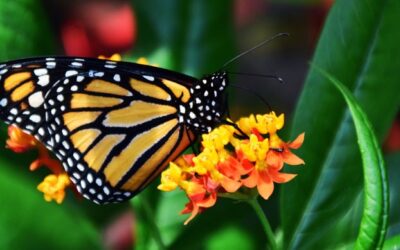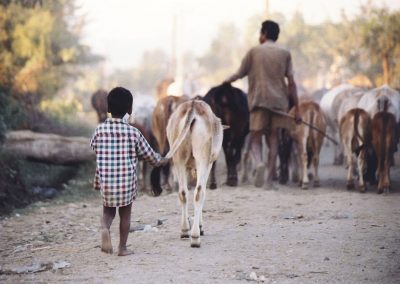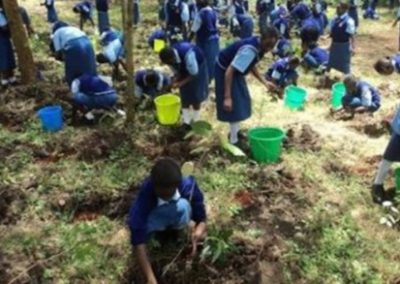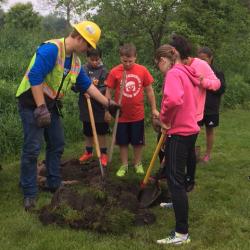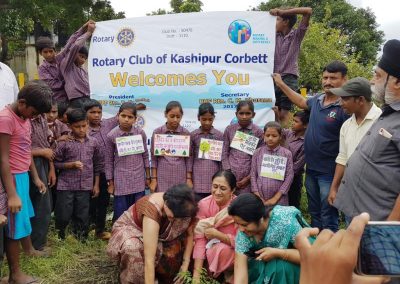THEME
Biodiversity
The term biodiversity (from “biological diversity”) refers to the
variety of life on Earth at all its levels, from genes to ecosystems,
and can encompass the evolutionary, ecological, and cultural
processes that sustain life.
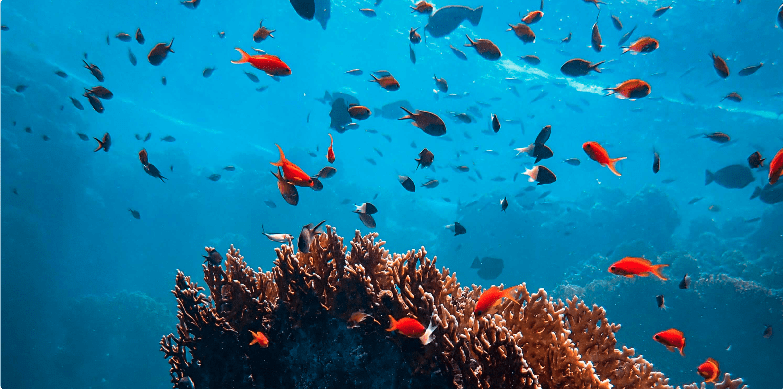
WHAT IS IT?
Biodiversity at ESRAG
How does biodiversity benefit humanity?
Earth’s biodiversity, now suffering catastrophic losses because of human activity, is essential for human communities to survive and thrive. We depend entirely on nature’s ability to provide us with ecosystem services. Here are some examples. Indigenous plants capture water for our aquifers, keep soil fertile, and prevent erosion. Healthy, unpolluted watersheds protect our drinking water. Terrestrial and marine forests sequester carbon and defend us from drought, heat, sea-level rise, and storm damage. A huge share of the human food supply depends on pollinators, and mangroves and coral reefs provide the habitat for our fisheries. Protecting wild habitats from human encroachment reduces our risk of pandemics.
BIODIVERSITY
Learn more
Becoming a “Solar Seeder”: How You Can Spark a Clean Energy Movement Even Without a Rooftop
By Laura Iyer When it comes to climate solutions, solar power often shines as a beacon of hope. It’s clean, increasingly the most affordable form of energy, and powerful enough to fuel entire communities. But here’s a lesser-known truth: installing solar panels...
Biodiversity: The Cornerstone of Life on Earth – And How You Can Help Protect It
When you hear the word biodiversity, what comes to mind? Maybe bees buzzing in a summer garden, forests teeming with birdsong, or coral reefs alive with color. But biodiversity is far more than beauty and wonder—it is the very foundation that supports life on Earth,...
Building a Better World: Rotary’s Premier Environmental Workshop Before RICON 2025
Friday, June 20, 2025 Location: Calgary, Alberta, Canada | In-Person at SAIT or Live via Zoom Registration: $85 USD (In-Person) | $10 USD (Virtual) 👉 Register here As climate challenges intensify around the globe, Rotary is stepping up. ESRAG (Environmental...
Take Action on Biodiversity
Through ESRAG, you will discover an array of projects through which Rotarians are protecting biodiversity and advancing many other Rotary humanitarian goals including safe water, community economic development, and health. Examples include regenerative farming, watershed restoration, river clean-ups, planting trees to rebuild soil and provide food, and pollinator gardens. Some of these projects advance resilience and generate new sources of income for communities. For example mangrove projects buffer storms and generate carbon offset credit revenue which communities can use for other needs like education or health care.
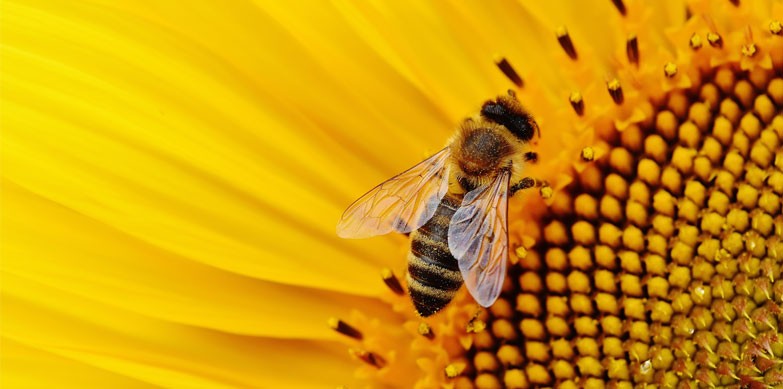
Operation Pollination
Operation Pollination enables and encourages Rotarians to engage in pollinator protection and education projects.
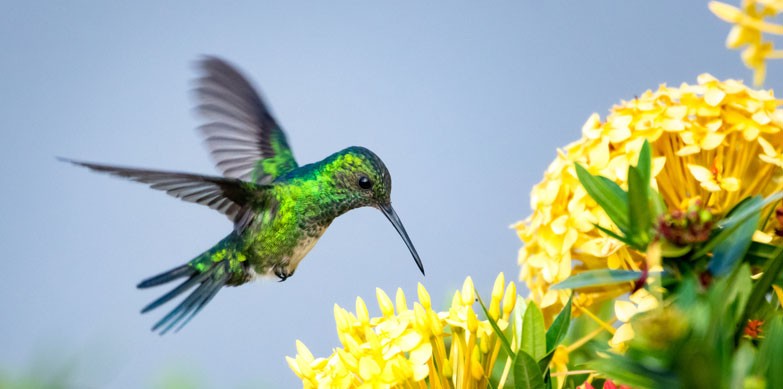
Pollinators
The Pollinator Task Force empowers and equips Rotarians to protect pollinators and educate about their importance.
BIODIVERSITY
Featured Projects
Projects surrounding biodiversity.
BIODIVERSITY IMPACT
Resources
ESRAG’s biodiversity theme brings together their
“Life on Earth” activities into one cohesive unit.
What does life on Earth cover?
This Biodiversity covers four great realms that can be visualized in the diagram below.
Biodiversity of Life
Seeking to slow and stop further loss of species
Ecosystem Restoration
Seeking to restore ecosystem services of the web of life
Sustainable Production
Seeking to produce and harvest resources efficiently
Environmental Resilience
Seeking to establish a sustainable balance between humans and biodiversity
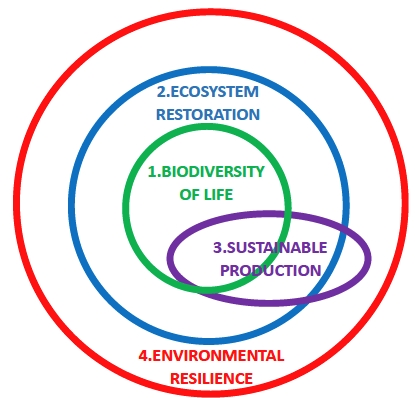
Mission
In keeping with the mission for all Rotary Action Groups, the mission of ESRAG’s Biodiversity Task Force is to explore the different avenues of service that are available to the Rotary Family, and specifically to be engaged with projects for Supporting the Environment.
Primary Actions
BIODIVERSITY
Featured Events
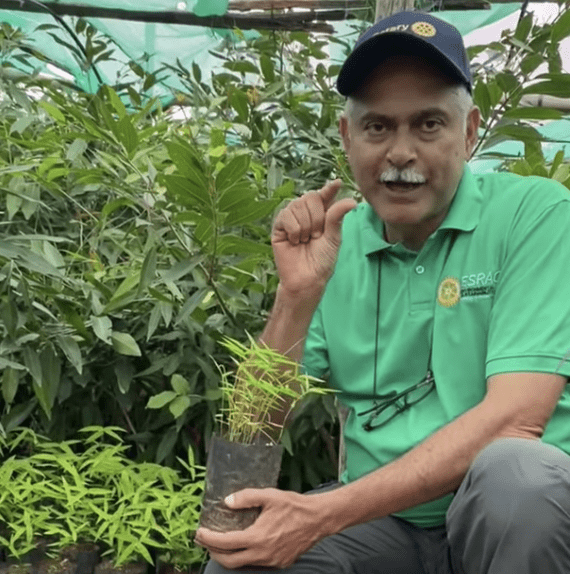
Speaker: Nancy Economou
Topic: literacy, poverty, solar power, renewables
More info
Speaker: Joanne Brasch
Topic: sustainability and circular economy
More info
Speaker: Guity Javid and Brian Gower
Topic: Regenerative Agriculture, tree planting and ecosystem services.
More info


